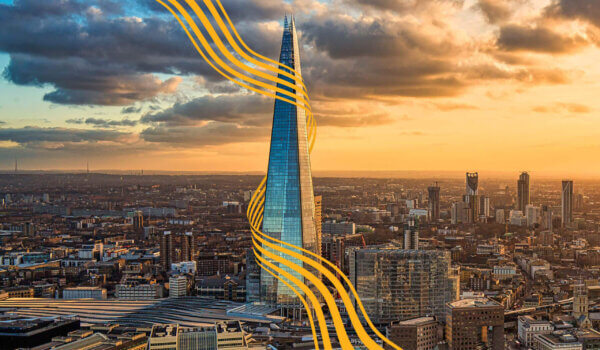Mitie joins carbon busting A-list – but what next?

With an ‘A’ rating from the global carbon disclosure system, CDP, Mitie joins a handful of organisations worldwide to achieve the highest possible score.
This recognises our commitment to environmental transparency, which is critical for achieving decarbonisation targets.
Group Director for Sustainability and Social Value, Jason Roberts, explores what the award means for customers and Mitie – and shares his honest opinions on what the UK needs to do next to reach net zero.
I’m engaged with Mitie’s sustainability strategy day-to-day. I know the huge amount of work that goes into reducing our carbon emissions, as well as those in our supply chain. So, from a personal perspective, achieving an A rating from CDP means a lot.
But what does this mean for customers?
With challenging net zero targets, organisations need a sustainability partner they can rely upon to deliver their decarbonisation strategy. The A rating from CDP shows our customers that we are leaders in the field. They have the assurance that not only are we taking our environmental responsibilities seriously and achieving our goals, but that we can do the same for them. It’s proof we have the expertise to accelerate the path to net zero across the entire value chain. And thanks to the positive impact such prestigious recognition brings, it means customers are assured of an exemplary decarbonisation partner, with whom they can be proud to do business.
And what does this mean for Mitie?
The A rating clearly recognises the effort we’ve put in over the last few years. Successes that have counted towards the rating include the extension of ISO 50001 Energy Management Systems across the organisation. This demonstrates our commitment to energy efficiency.
In addition, having science-based targets, which are officially endorsed by the Science-Based Targets initiative, is a boost to Mitie’s credibility in this space. Aligned with the goals of the Paris Agreement to limit global warming to 1.5degrees above pre-industrial levels, Mitie’s near-term, long-term and net zero targets have all received SBTi validation. We are one of around 220 organisations worldwide to achieve all three. It’s a stringent process, which means Mitie is successfully mapping and reporting carbon emissions across our supply chain.
We’re also proud of our advanced electric fleet transition strategy, which will see 1776 EVs delivered during FY23/24. This brings the total number of Mitie EVs to around 4,700, showing we are ideally placed to help customers with their EV strategies.
FM’s role in decarbonisation
Mitie’s CDP rating shows that facilities transformation and decarbonisation are inextricably linked. Of course we take care of our customers’ comfort, safety and cleanliness. But we also provide the data and analytical reporting that enables them to make strategic decisions. By embedding technology and drawing on the expertise of our energy, waste and biodiversity teams, we help customers decarbonise their estates. Some organisations are more advanced in this area than others, but most do require the support of an expert partner to get to net zero. They just don’t have the expertise, time or resources to implement an effective strategy in-house. So in my view, FM is critical to the UK reaching net zero by 2050.
UK leadership waning
A few years ago, the UK was seen as a world leader in decarbonisation, but that is probably no longer the case. The Government should ideally recognise that it acts like a catalyst. In the same way FM is needed to spur organisations onwards to net zero, Government commitment is needed to encourage the country as a whole. They should create the policy and set the standard, while progress needs to be harder and faster.
To do this, I believe the trinity of policymakers, finance and business would be best to work together. It’s about transitioning to greener energy and EV fleets, replacing gas fired boilers with low carbon heat pumps, plus decarbonising the grid by moving away from fossil fuelled energy generation to more renewable solutions such as solar and wind power. Policies and subsidies are needed to help that transition. For example, the EV charging network across the UK needs to be developed much faster to make it easier for individuals and organisations to move to electric.
Inspiration from abroad
Finance will be key to achieving the UK’s 2050 net zero commitment. It might come as a surprise, but the USA is taking a lead on freeing up funding to make decarbonisation possible. As part of President Biden’s Investing in America agenda, £29.75bn has been earmarked for accelerating clean energy, clean buildings and clean manufacturing. By ramping up that access to finance, it will enable the green transition to happen faster. It would be great to see similar happening here in the UK.
Do you agree with Jason? Send your thoughts to [email protected].
Read next

High performance provides bold new focus for Mitie
An exciting commitment to elevating the performance of the built environment is at the heart of Mitie’s newly revealed corporate narrative. With 72,000 colleagues working across the public and private sectors, and delivery that…
Mitie recognised as UK Top Employer for seventh consecutive year
Mitie, the UK’s leading facilities transformation company, has been recognised as a UK Top Employer for the seventh consecutive year. With a growing workforce of 72,000 colleagues in a competitive market for attracting and…

How we’re using AI to drive facilities transformation
As AI plays a growing role in facilities management, we share how Mitie is putting this transformative technology to use – and what that means for our clients. By Anindya Biswas and Michael Moulsdale…

Mitie partners WalkSafe as people feel unsafe after dark
As Mitie announces its partnership with WalkSafe, the UK’s leading personal safety app, a new survey on perceptions of safety has found that 44% of women and 21% of men do not feel safe…
 Skip to content
Skip to content